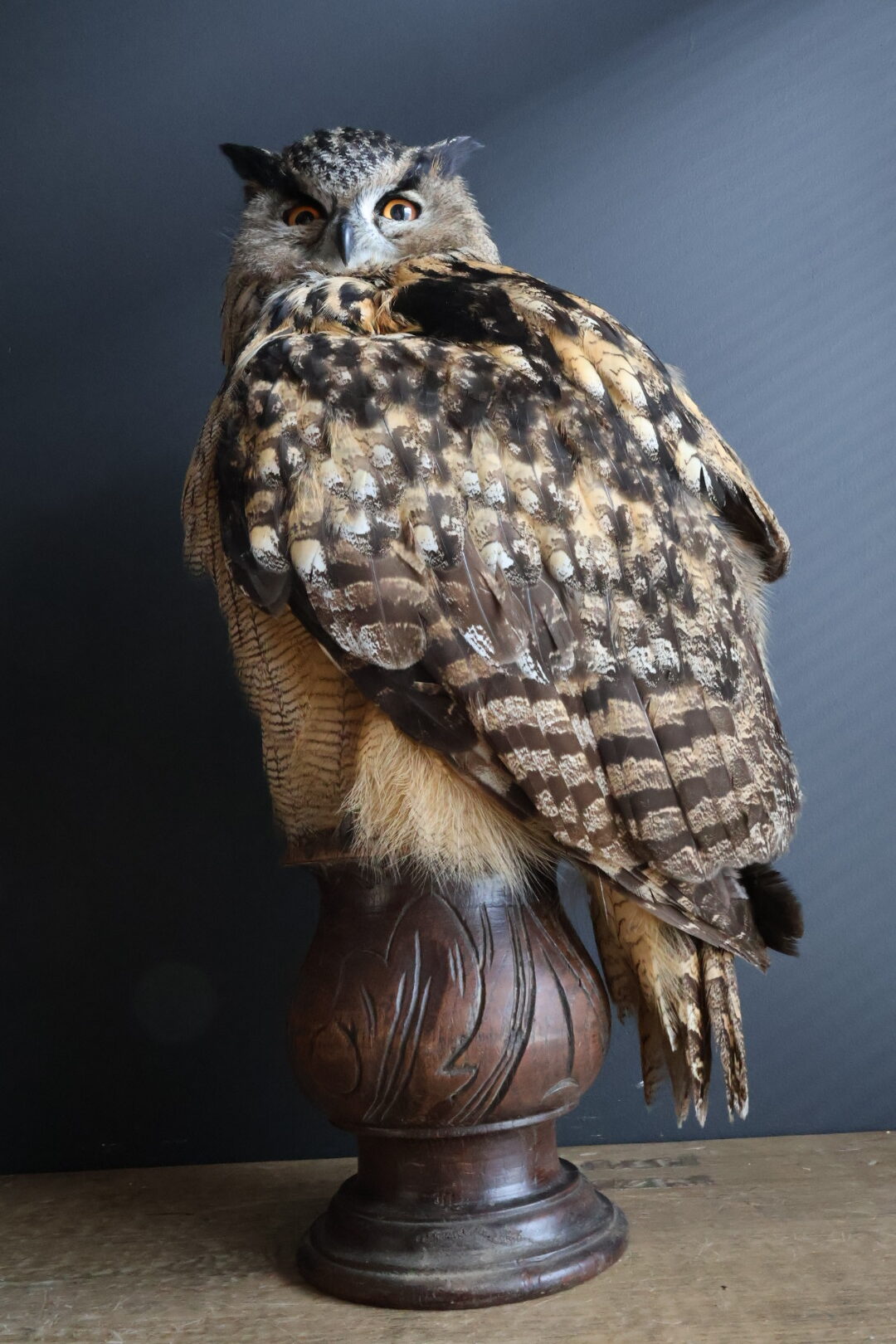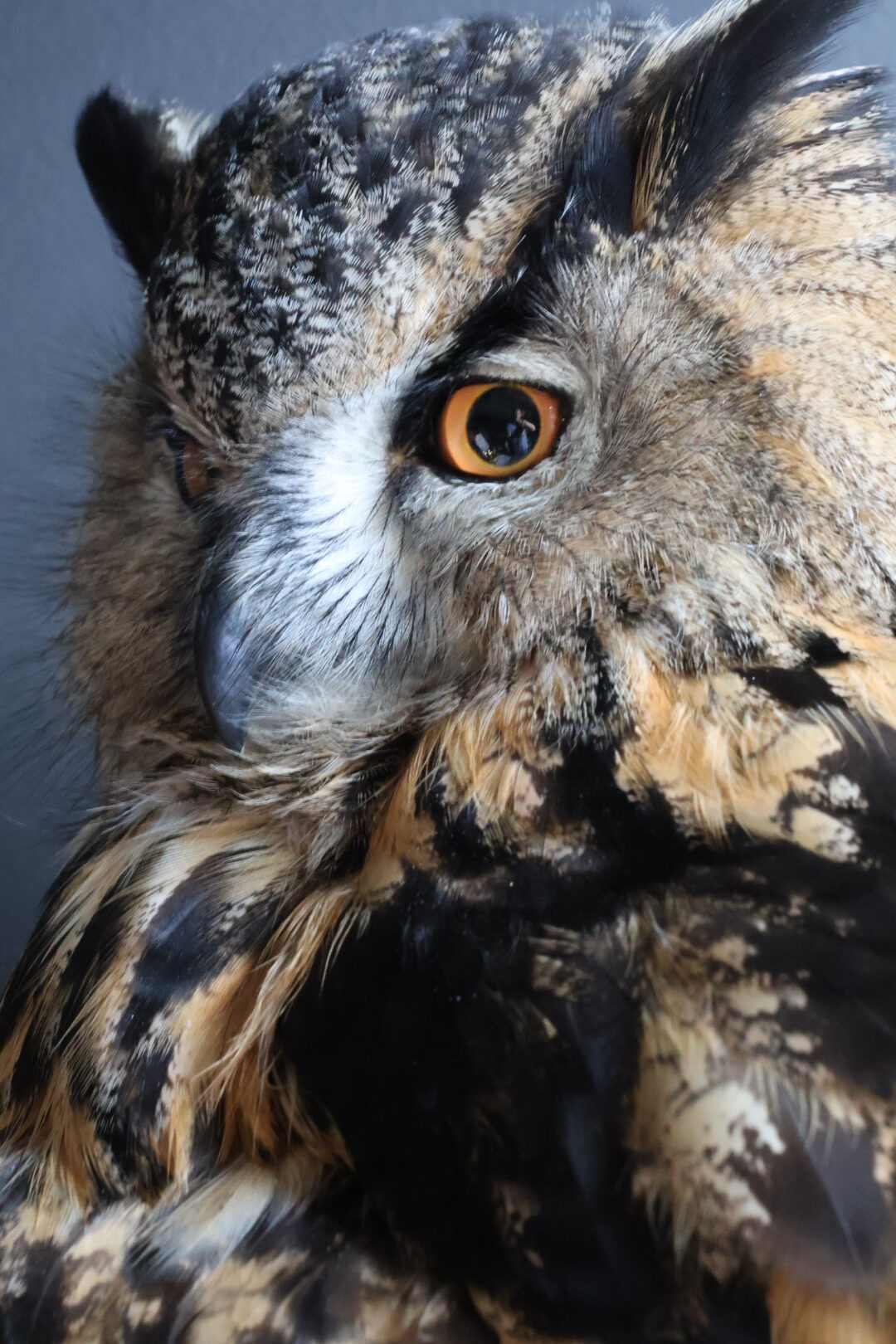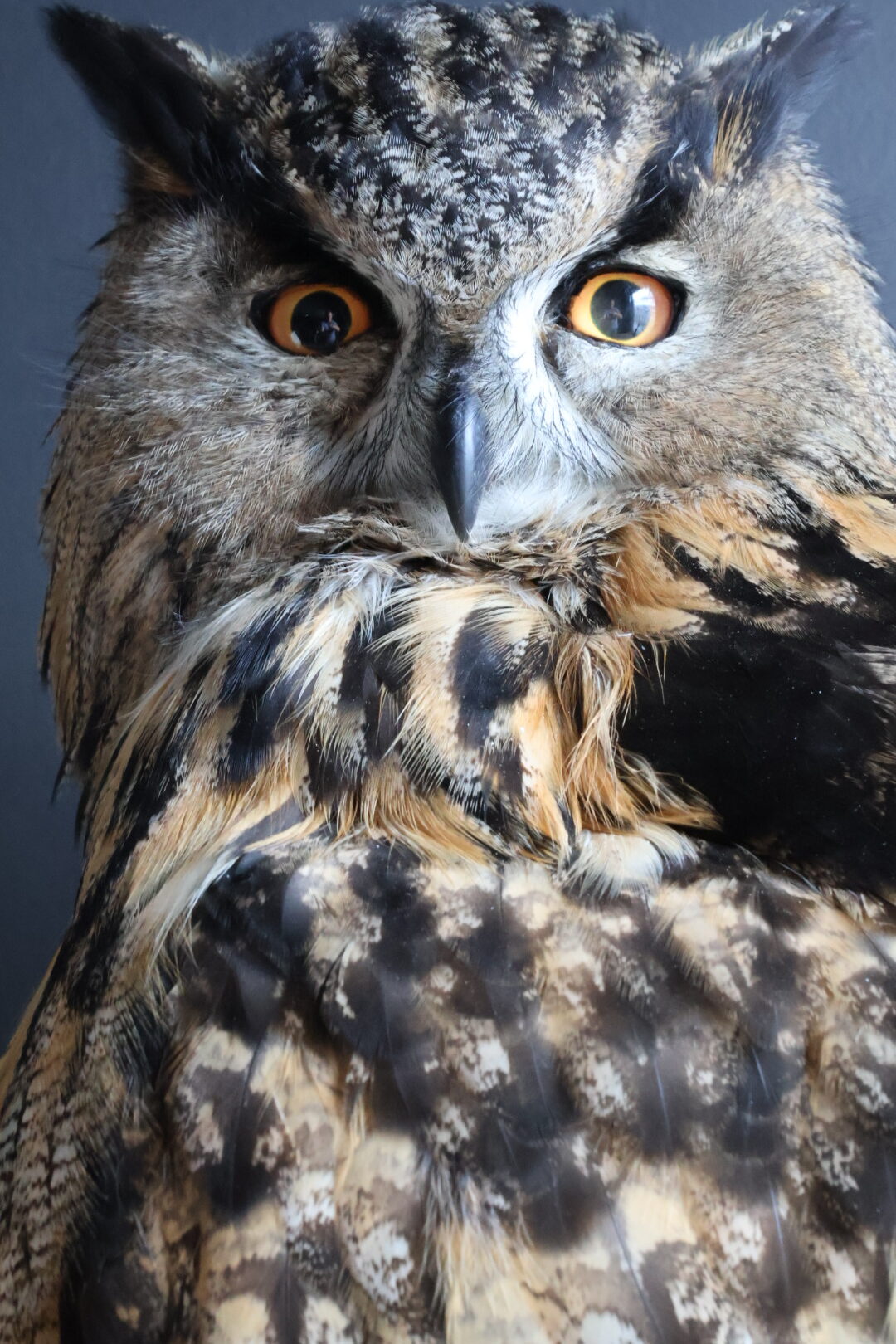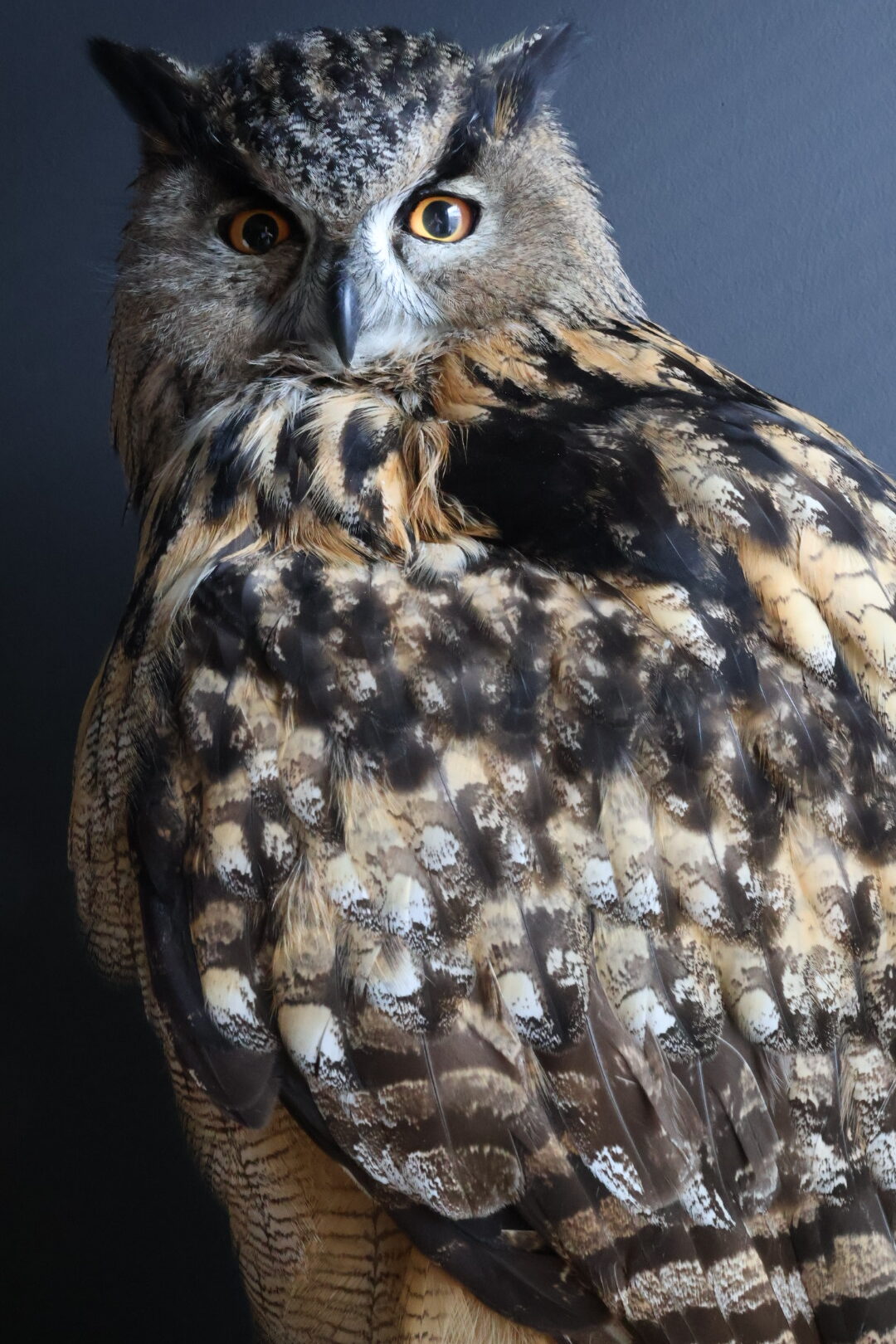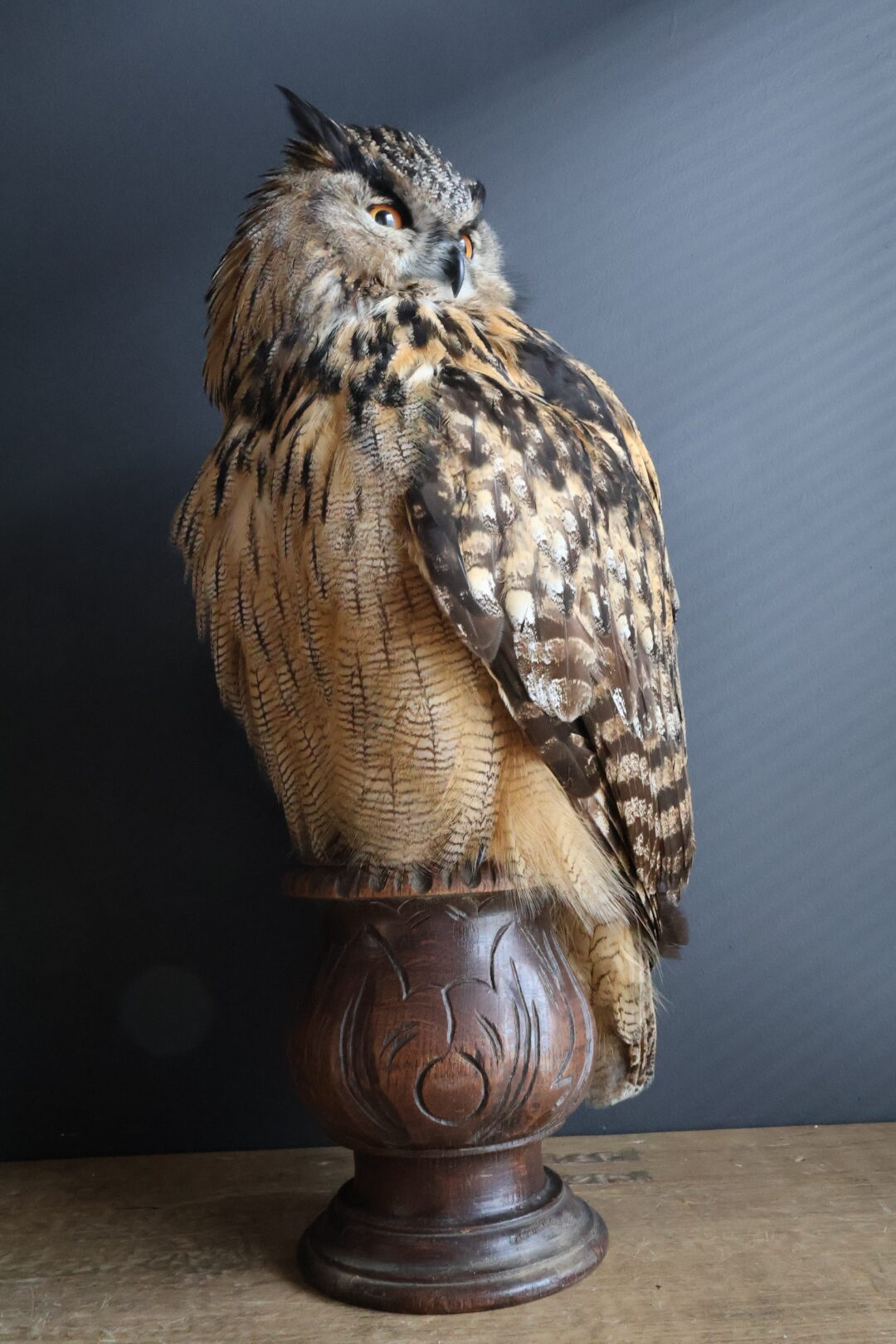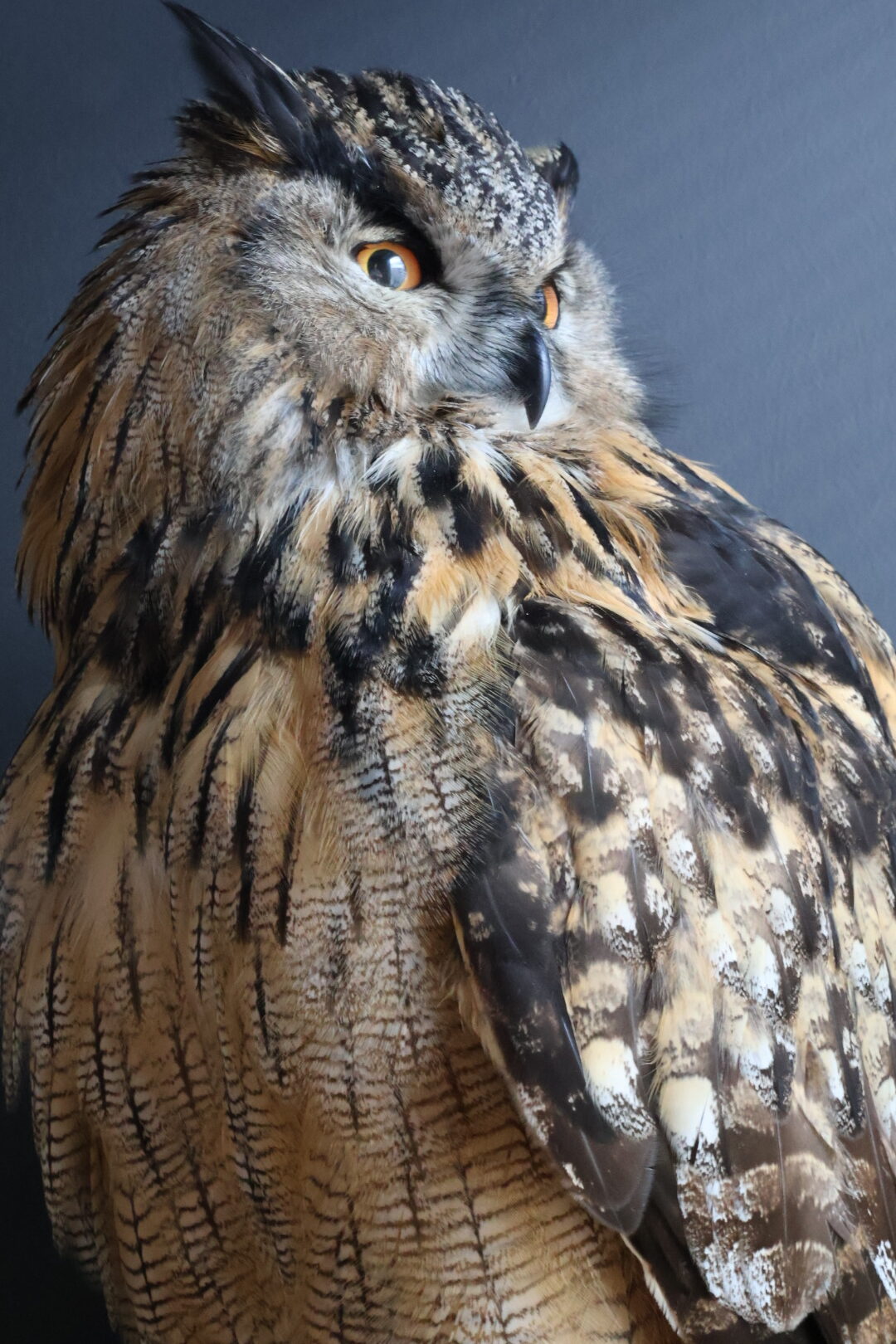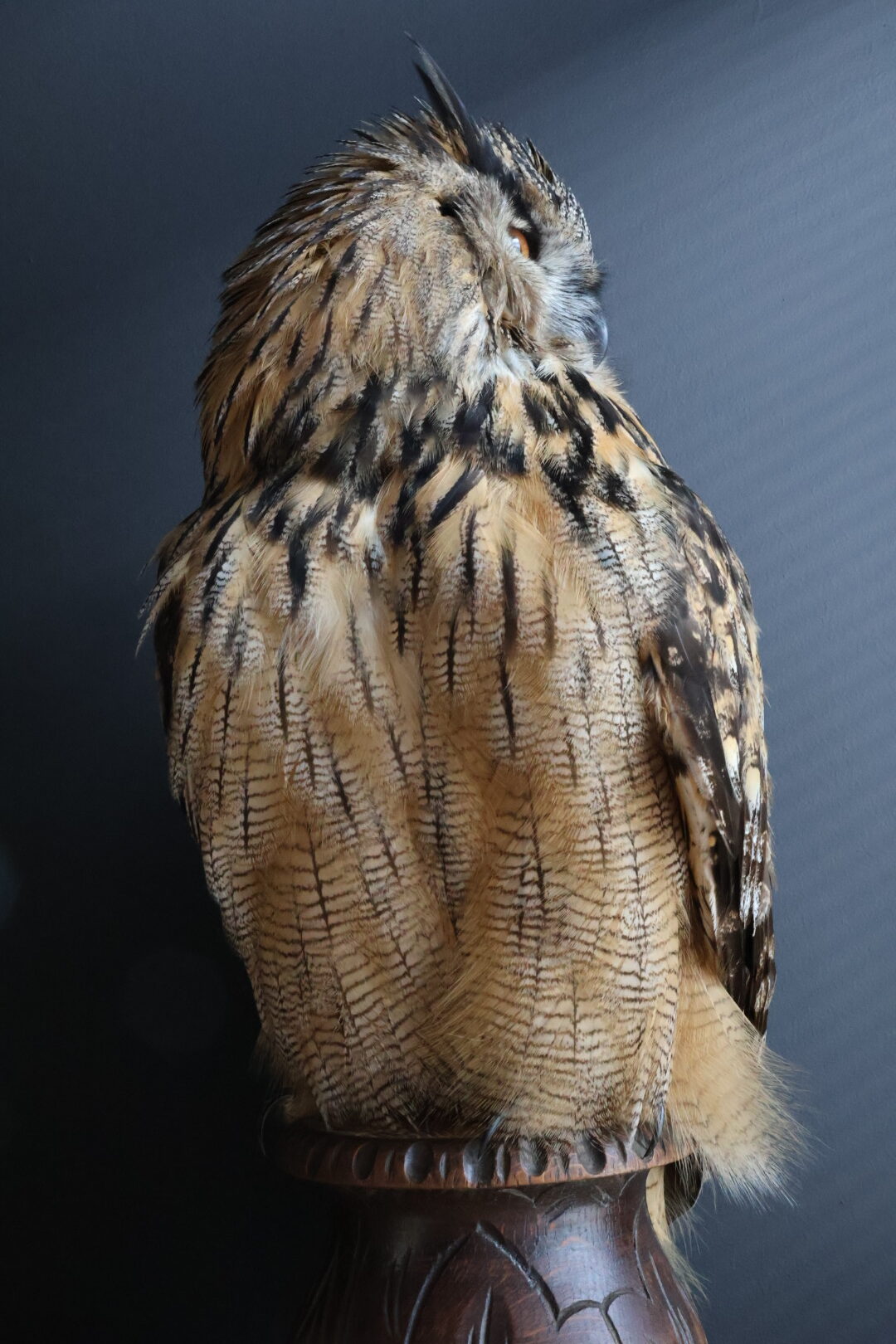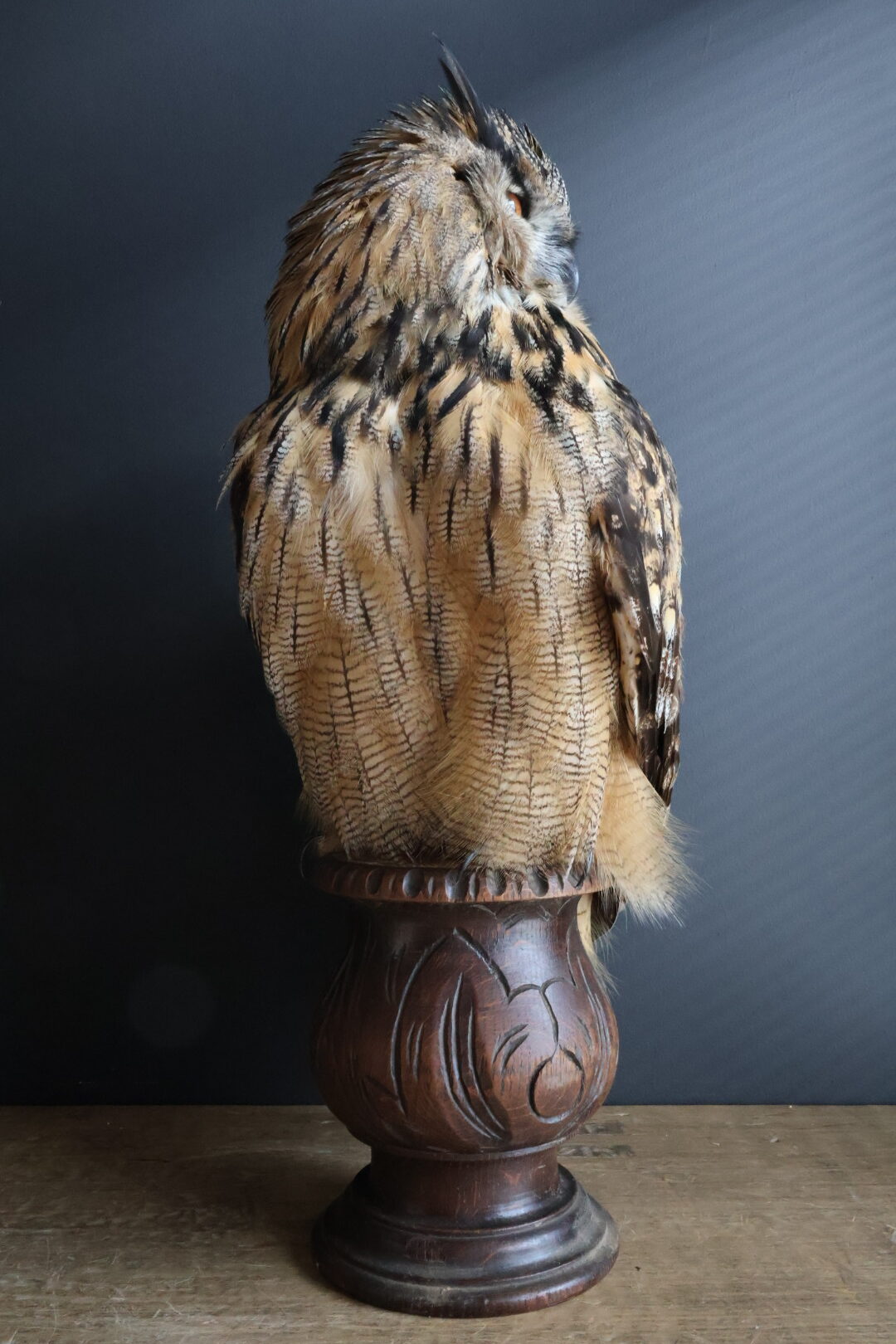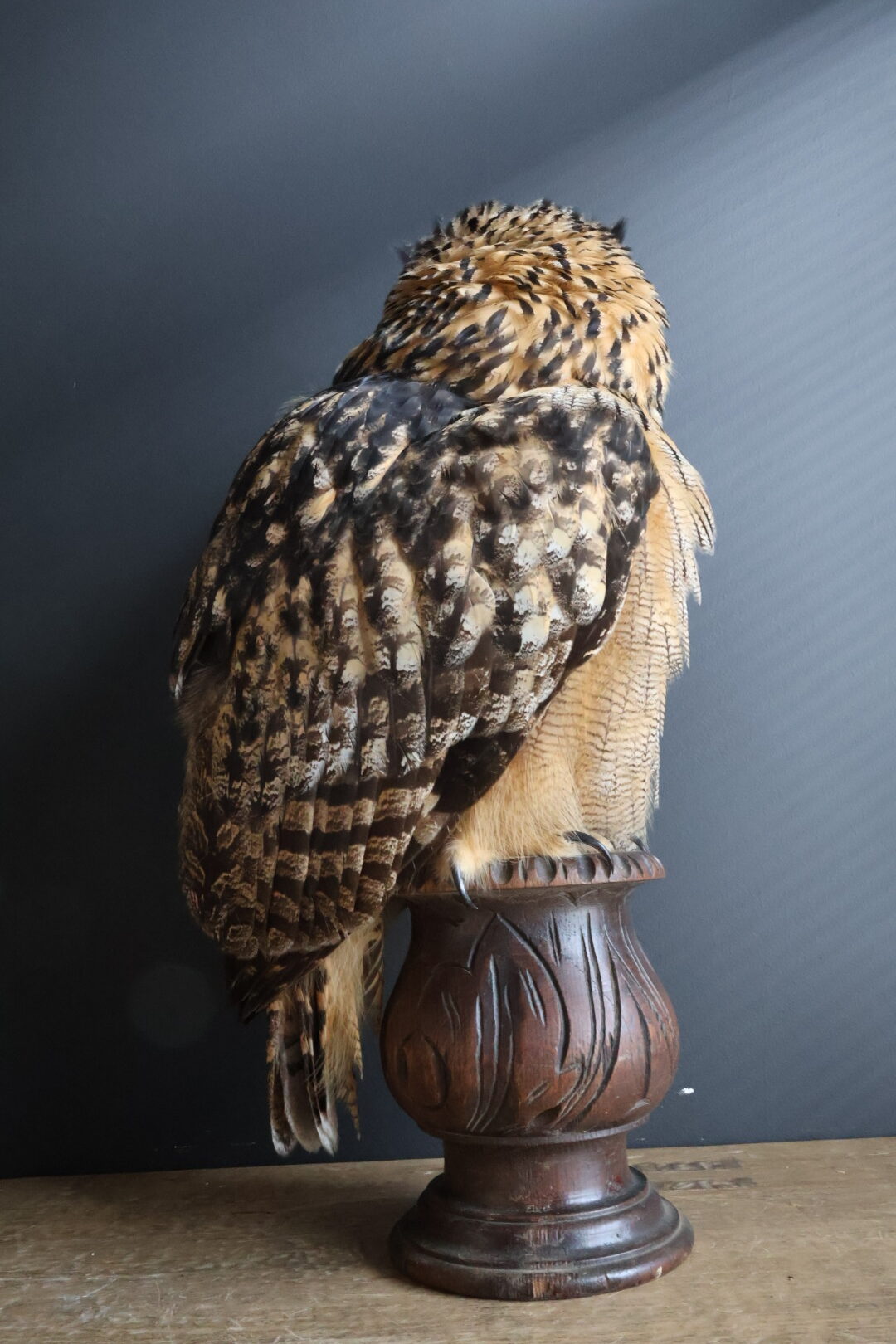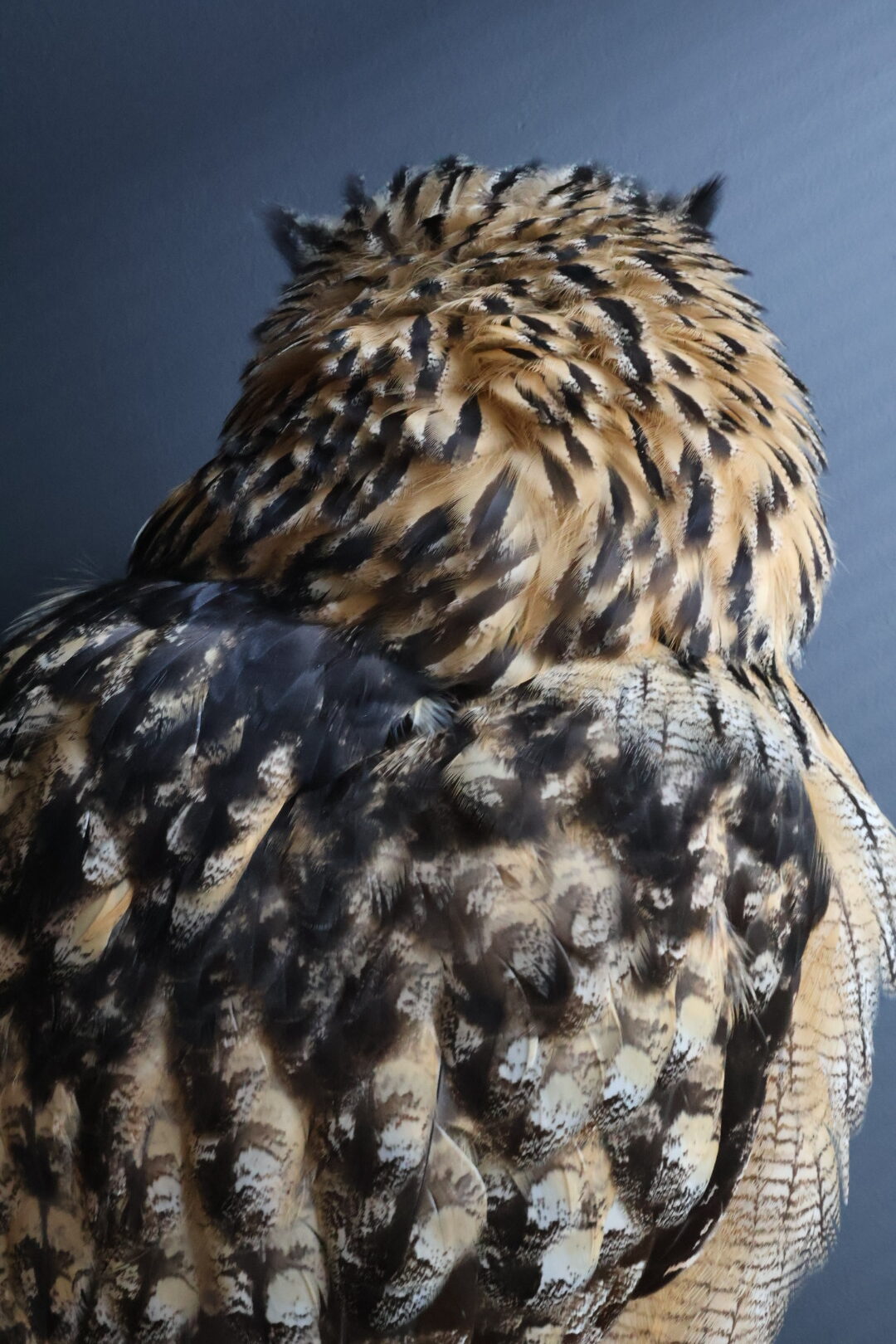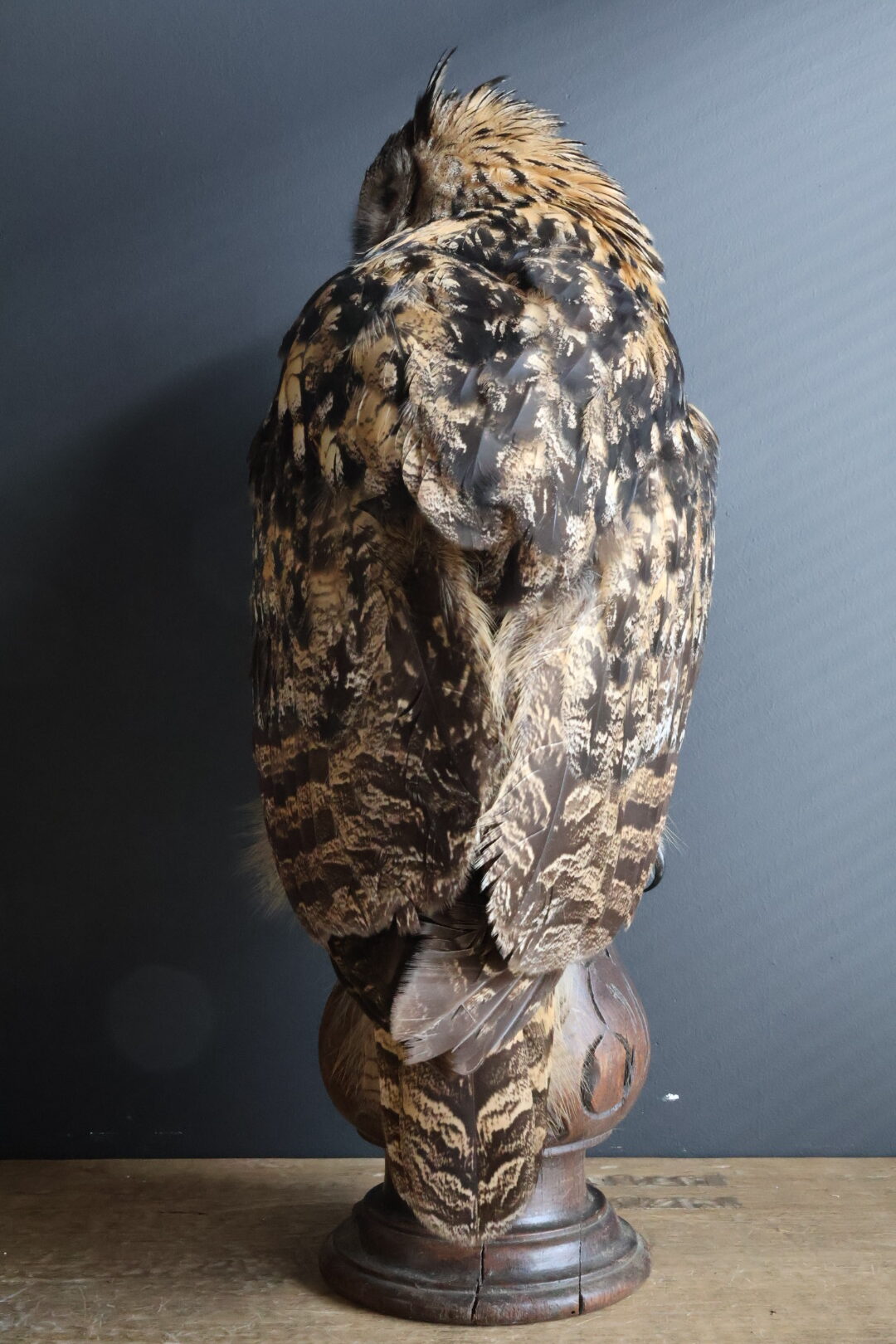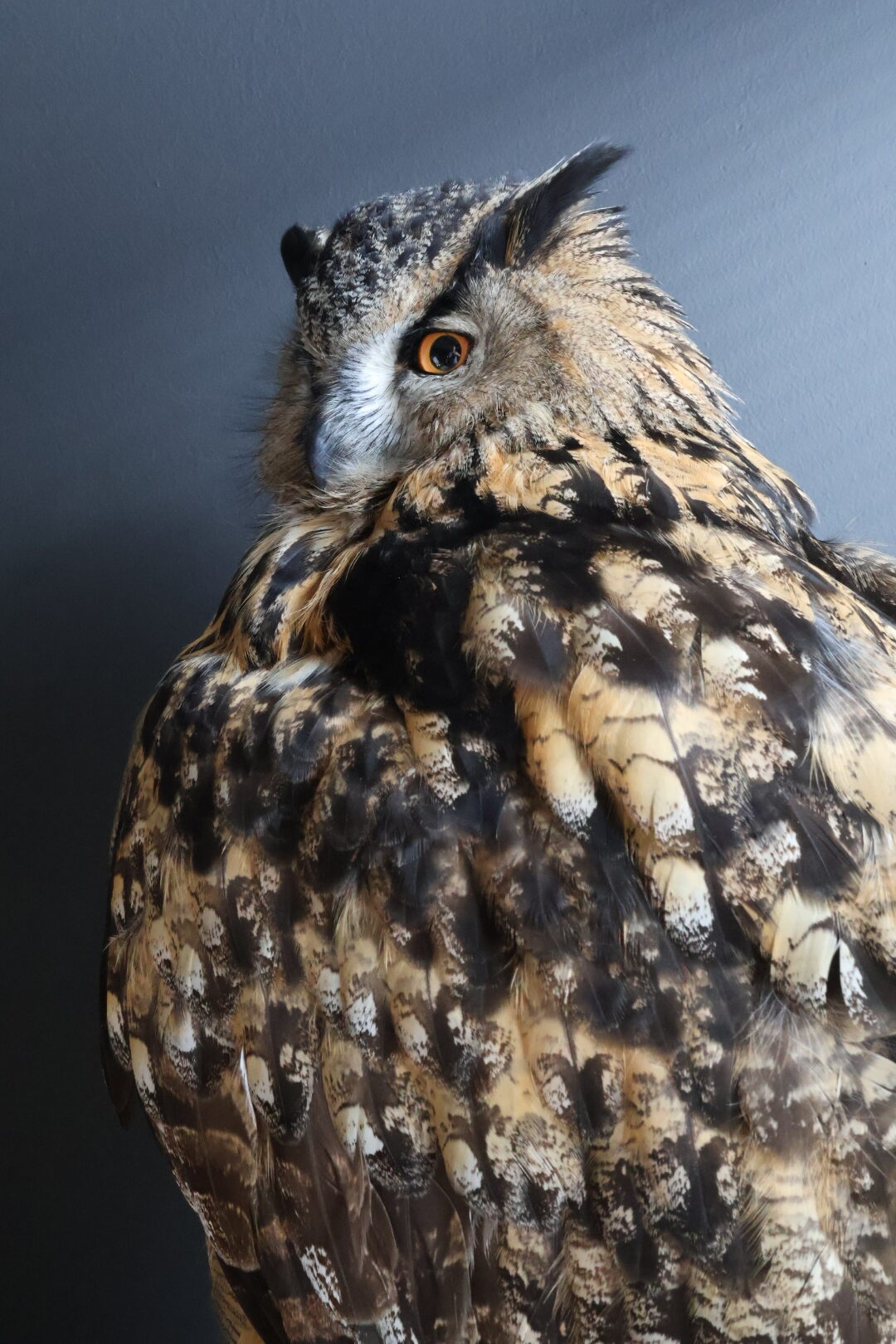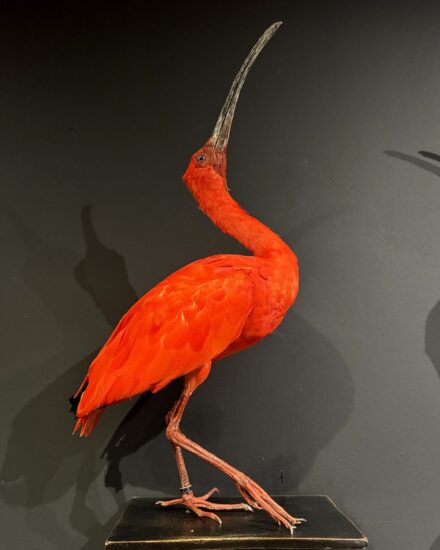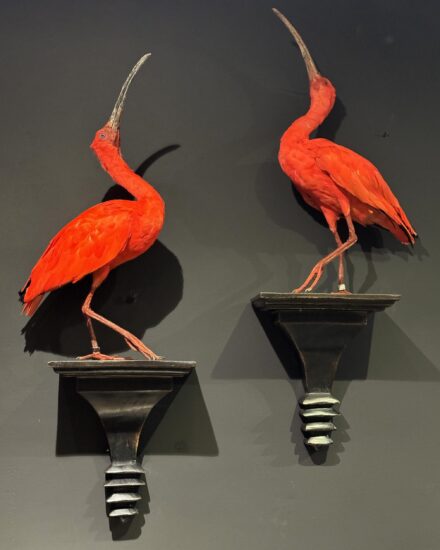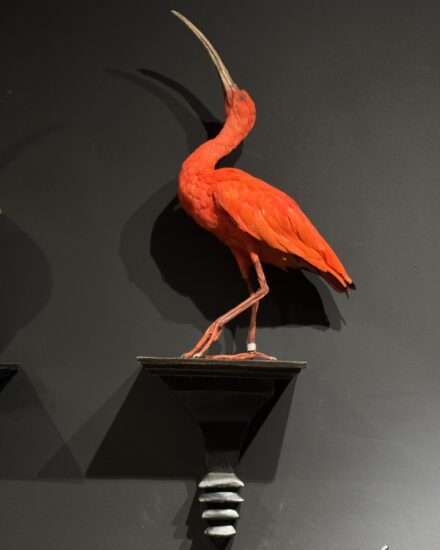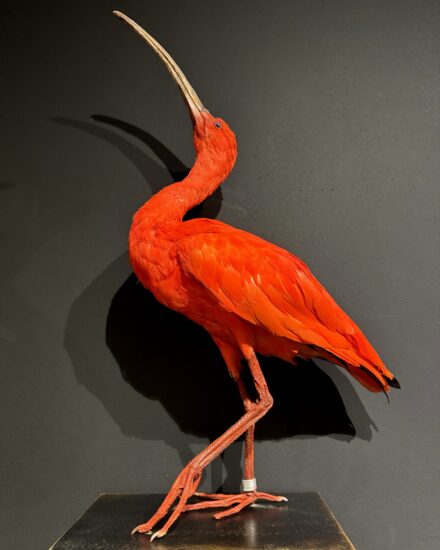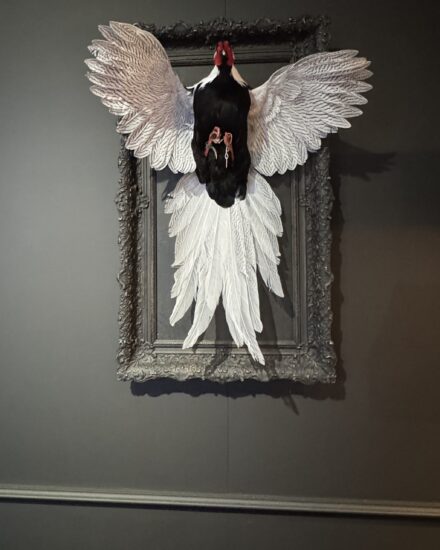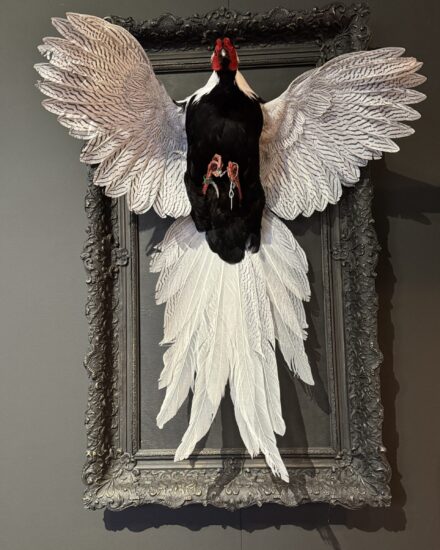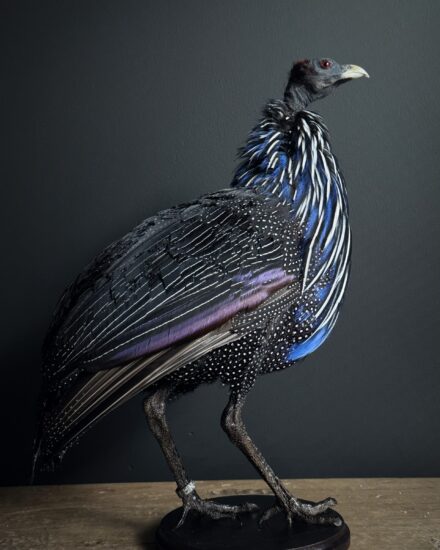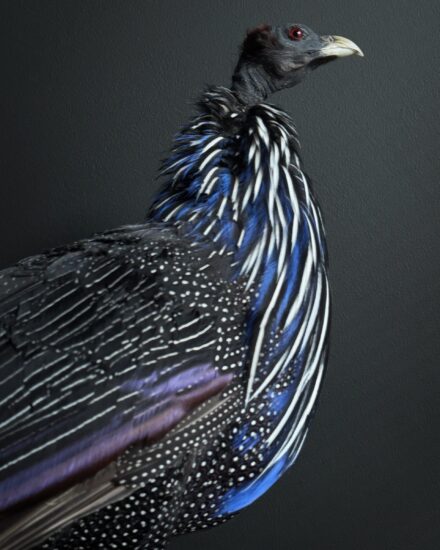Backorder
Beautifully mounted very large Eagle Owl. The eagle owl is mounted on a special antique console which makes it a beautiful piece.
This eagle owl has a fixed foot ring and comes with a correct cites document.
The eagle owl (Bubo bubo) is one of the largest owls in the world. The scientific name of the species was published as Strix bubo in 1758 by Carl Linnaeus. The bird gets its name from its call. Especially in late winter, the male lets its imposing "eagle owl" call be heard.
Physical characteristics.
This owl is 60-75 cm long and has a wingspan of 160-188 cm. There are differences, as well as overlap, in body size between the two sexes. Males weigh 1.5 to 2.8 kilograms; females are bulkier and heavier in the shoulders and weigh 1.75 to 4.2 kilograms
Mounted Eagle Owl
€1.975,00
Available on backorder
- Length: 32 cm
- Depth: 25 cm
- Height: 63 cm
Request For More Information
